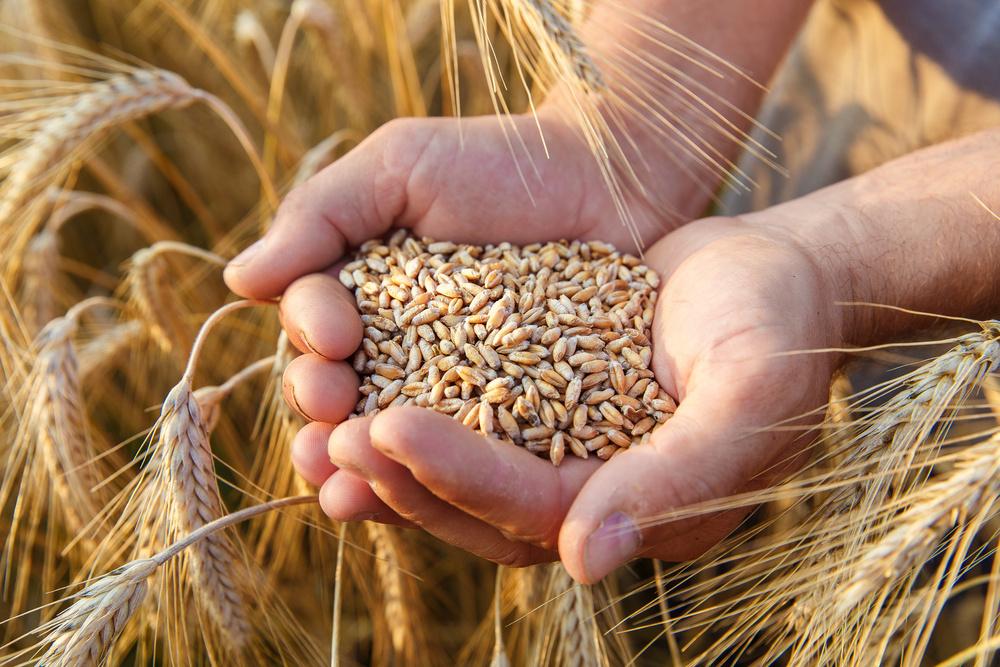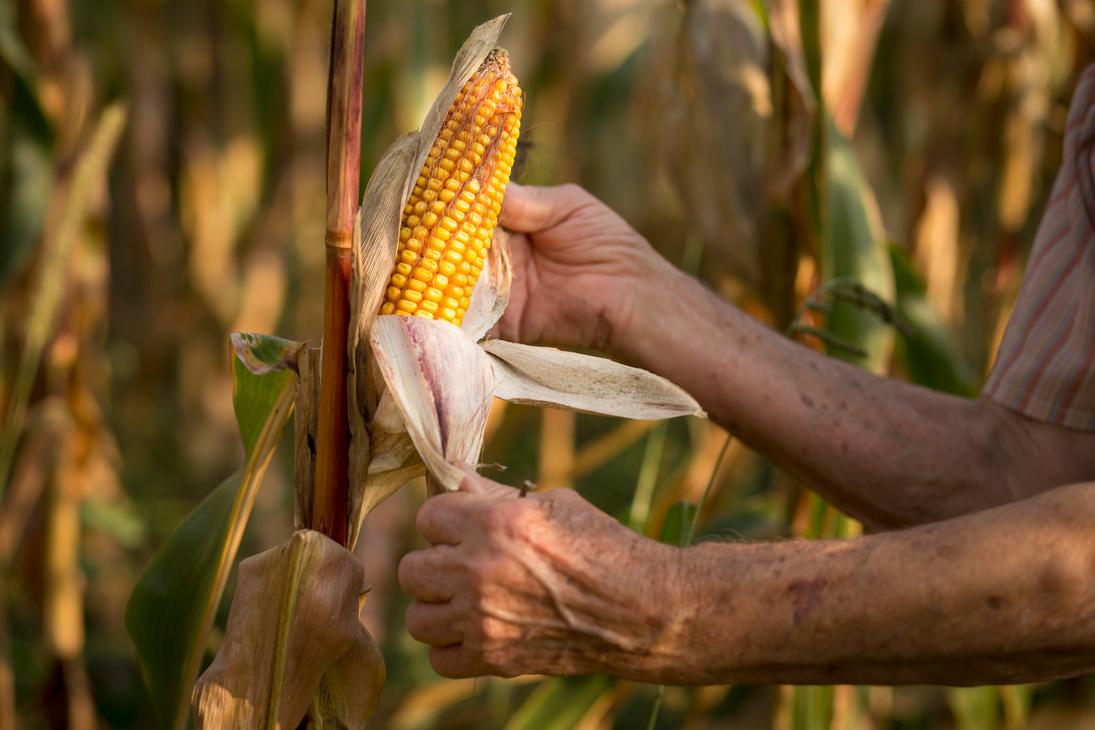
OECD Schcemes for the Varietal Certification of Seed Moving in Interantional Trade
OECD Codes and Schemes
Trade and Agriculture Directorate


OECD Schcemes for the Varietal Certification of Seed Moving in Interantional Trade
OECD Codes and Schemes
Trade and Agriculture Directorate
The OECD Schemes for the varietal certification or the control of seed moving in international trade were established in 1958 within the framework of the Organisation for European Economic Cooperation (OEEC) and was transferred to the Organisation for Economic Cooperation and Development (OECD), the successor organisation of OEEC, when it was created in 1961. It is one of the oldest programmes within the OECD. The first OECD Seed Scheme was developed for varietal certification of herbage seed moving in international trade The principal aim was to encourage the production and use of consistently high-quality seed in participating countries. High quality seeds are a very important tool to boost agricultural productivity sustainably. Since its inception the OECD Seed Schemes have expanded to a total of eight Seed Schemes defined according to groups of species of cultivated plants. The OECD Seed Schemes currently cover over 200 agricultural and vegetable species. The principal goals have been expanded to include a vision to develop and facilitate a globally harmonised seed certification system to meet the requirements of its members' evolving agriculture and trade policies.
With the transfer to the OECD, the Seed Schemes became a global seed varietal certification system. The participation was voluntary, but all members of the OECD agreed to join the programme. In addition, some members of the Food and Agriculture Organisation (FAO) that were not members of the OECD were also interested in participating. To accommodate this demand, the OECD and the FAO agreed to open up the Seed Schemes to those FAO members wanting to join on condition that they successfully go through an evaluation process. Later, this option was extended to members of United Nations (UN) and World Trade Organisation (WTO), which further ensured worldwide access to the OECD Seed Schemes. As a result of these measures, currently 62 countries participate in the programme from all over the world.

The OECD Seed Schemes continue to welcome new countries. The OECD can also assist these countries to develop their national seed varietal certification system, applying the OECD Seed Schemes as a "best practice" toolkit. The OECD can also organise capacity building activities on its own or jointly with other key seed organisations (e.g., in the framework of the World Seed Partnership (WSP), which is a joint initiative of the OECD, the Union for the Protection of New Varieties of Plants (UPOV), the International Seed Testing Association (ISTA), the International Seed Federation (ISF) and the World Farmers’ Organisation (WFO).
The OECD Rules and Regulations for seed varietal certification are technical standards developed by seed certification specialists in participating countries in close cooperation with other international seed-related organisations such as UPOV, ISTA, FAO and ISF as a global representative of the seed sector. In addition, many regional seed representative organisations also participate in the development of those technical standards The OECD is well known for its evidence-based advice and standards as well as for being a forum where national experts from different areas can meet and jointly develop common standards and procedures for the benefits of participating countries according to their mutual interest. This reputation of the OECD and the broad involvement of highly qualified seed experts in the standard setting process ensure the wide acceptance of the OECD seed varietal certification system and its value to the global seed sector and the agricultural sector.
are managed and coordinated by a Secretariat to ensure successful implementation at the international level;
are implemented by the participating countries’ National Designated Authorities;
are developed upon close cooperation and mutual trust of all stakeholders, which are key factors to get harmonised standards and procedures for varietal certification, including a clearly defined traceability system.
These areas help maintain the reputation and reliability of the Schemes, giving confidence to participating countries’ and globally to the seed sector.



The OECD Seed Schemes and its seed varietal certification system are one part of a broader international regulatory framework* which regulates seed trade, ranging from access to delivery of quality seeds to growers. It includes:
Internationally recognised test guidelines for variety characterisation
Protection of breeders' rights
Internationally recognised standard procedures for seed sampling and testing reporting
International treaty on Plant Genetic Resources for Food and Agriculture
This Strategic Plan took into account the OECD Agriculture Ministerial’ s Declaration on Transformative Solutions for Sustainable Agriculture and Food Systems [OECD/LEGAL/0483] as well as the outcomes of the Seed Policy Workshop organised on 13 June 2022 [TAD/CA/S/M(2022)4]. Policy recommendations from this workshop include strengthening the OECD seed varietal certification system, promoting international seed supply chains and diversification, supporting international regulatory cooperation, and ensuring farmers' access to innovations through stateof-the-art certification and variety registration systems aligned with sustainable development goals.
* Key participants in the system include OECD, UPOV, ISTA, ISF, FAO. In addition, international conventions and treaties provide the international regulatory framework for related aspects of seed trade, including access and benefit sharing of plant genetic resources, plant health and phytosanitary measures and technical barriers to trade.
The OECD Seed Schemes facilitate the international trade of quality seed by applying harmonised seed varietal certification standards and procedures.
Globally harmonised seed varietal certification supporting the wider development of a productive, sustainable and resilient agriculture and food system.
“Quality seeds for world needs.”
The aim of the Strategic Plan is to further strengthen the relevance of the OECD Seed Schemes and their value to participating countries by identifying strategic areas of interest to be included, developed or improved while implementing the OECD Seed Schemes.
The representatives of the National Designated Authorities at the 2023 Annual Meeting agreed on the following strategic aims for the future focus of the OECD Seed Schemes:
Ensure integrity and resilience of the Schemes
Increase awareness of the value of the Schemes
Maintain state-of-theart standards
Facilitate participation in the Schemes
Strengthen linkages between the Schemes and policy-making bodies
The implementation and timeframe, as well as resource requirements of the operational objectives related to strategic aims outlined in the Strategic Plan are subjects of the OECD Seed Schemes Action Plan and the OECD Seed Schemes Programme of Work and Budget.
Support effective and harmonised implementation of the OECD Seed Schemes in participating countries.
Monitor the implementation of the OECD Seed Schemes in participating countries by undertaking regular reviews.
Make better use of data for improving the Schemes, including deeper analysis of performance statistics
Encourage and support capacity building so that participating countries are more able to ensure the integrity of the Schemes domestically.
Encourage information sharing among National Designated Authorities and with the OECD Secretariat to address issues critical to the integrity of the OECD Seed Schemes in a timely and clear manner.
Support seed certification as a tool to facilitate traceability along the supply chain.
Maintain a certification system that is responsive and resilient to evolving global challenges.
Proactively consider advances in plant breeding and varietal characterisation to contribute to farmers’ access to innovation.
Ensure that the standards and rules are evidence based and responsive to changing conditions in world seed production and trade.
Explore the feasibility of incorporating other quality aspects into the OECD seed certification process.
Regularly review the scope of coverage of the OECD Seed Schemes
Enhance the exchange and sharing of experiences and information on the OECD Seed Schemes at Annual Meetings, seed-related seminars as well as through other relevant regional/international events and conferences.
Develop promotional tools and material to (i) help stakeholders including National Designated Authorities to explain the value of the OECD Seed Schemes and raise awareness domestically; and (ii) assist potential new participating countries.
Translate OECD Seed Rules and Regulations and related documents into other languages of interest for participating countries.
Inform policy makers of the key roles of the OECD Seed Schemes in the seed supply chain and their contribution to the development of a productive, sustainable, and resilient agriculture and food system.
Strive to ensure the role of the seed sector is recognised in key areas of policy (e.g., climate change, food security, biodiversity).
Provide a better understanding of the impacts of the OECD Seed Schemes on international trade through specific research studies.
Cooperate with other seed-related organisations to improve global seed trade.
Provide the opportunity for a potentially interested country to attend the meetings as an observer for a limited period.
Provide a straightforward application process to participate in the OECD Seed Schemes (e.g., through clear guidelines, with clear expectations).
Support and facilitate specific capacity building initiatives and development of training materials.
3. 4.
Enhance collaboration with international and regional organisations involved in the seed sector.
www
“Together, we create better policies for better lives”
The Organisation for Economic Co-operation and Development (OECD) is an international organisation that works to build better policies for better lives. Our goal is to shape policies that foster prosperity, equality, opportunity and well-being for all. We draw on 60 years of experience and insights to better prepare the world of tomorrow.

The OECD Codes and Schemes aim to streamline international trade by simplifying procedures, enhancing transparency, reducing trade barriers, promoting standard harmonisation, and environmental protection. They strengthen market confidence via quality control and inspections, and improve product traceability.
Csaba Gaspar
csaba.gaspar@oecd.org
Aurelia Nicaultaurelia.nicault@oecd.org
Website
www.oecd.org/tad/seed
Office Address
2 Rue André Pascal, 75016 Paris